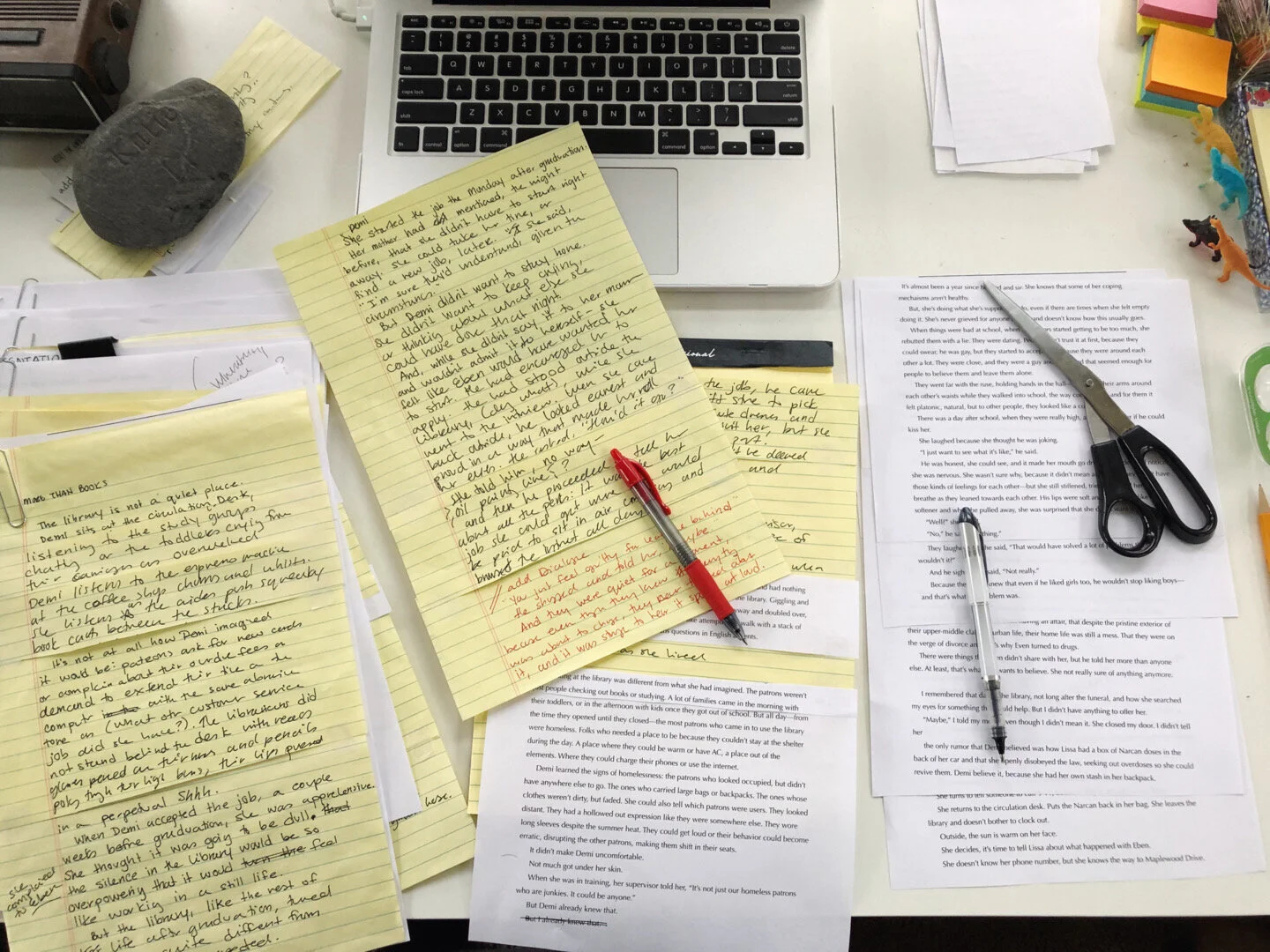How To Write A Lot
Here's a non-exhaustive but tried-and-true list of methods to produce more writing on a consistent basis:
Know Your Goals
Before you get started, appraise your goals. What do you want to write? Having a project or goal in mind can help you break down the work into manageable steps.
Audit and Update Your Habits
Track how you spend your time for one week. See where you can make changes to your routine, even if it’s 10 minutes once per week. Add one new change to your routine until it becomes consistent.
Use a planner to keep a schedule or track your goals
Do you use a planner? If not, start! There’s lots of options. If a traditional calendar doesn’t appeal to you (which, you might want to give a try because it could help to book writing time in your schedule), look into using a habit tracker. Or use both.
Keep a Journal
Find 10 minutes to write in it daily, even if it’s just to note—I wrote something.
Take “What If” Walks or Jogs
Take regular walks or jogs around your neighborhood, or another route you can take consistently. Notice what stays the same day-by- day, if there are people you recognize, or if there are subtle changes. Note any story ideas you discover as you start to wonder, “What if…”
Make Stories Part of Your Life
When you aren’t writing, consume stories whenever possible. Read the news. Watch TV. Listen to interviews. Follow creators who inspire you on social media.
Get Organized
Create a system for logging your ideas, character notes, dilemmas, and lines of dialogue. Have a handwritten system as well as one on your phone.
Keep Your Writing Appointments
Say no to plans that conflict with your writing time.
Turn off your phone.
This one is important so I’ll say it again—turn off your phone.
Discover Your Craft
Study up! Learn new methods of plotting and outlining. Watch your favorite movies and TV shows and break them down to study their crafting. Check out interviews with creators talking about their process.
Practice Craft with Short Work
There’s a reason why writing programs focus on short stories and essays. They are an efficient way to practice craft—from the spark of an idea to a finished story—while you produce a body of work. If you are working on a novel, write short stories about your characters.
Practice Discipline
Set deadlines for yourself and keep them. Don’t start a new story until you’ve finished the first one. Get good at organizing your notes or learning how to outline so you can jump into the next story once the first is done.
Know thy enemy—and by that I mean, yourself
Pay attention to when in the writing process you get blocked, and find methods to unblock yourself.
Manage Your Mindset
Accept that some of your work won’t live up to your expectations. That’s okay! Know when your piece is done and move on to the next story. Perfect is the enemy of good. Keep writing.
Have fun!
Find the joy in the process. Any practice is more sustainable when you are having a good time. If you’re not enjoying your writing, ask yourself, What would make this fun again? Then update your writing practice accordingly <3
